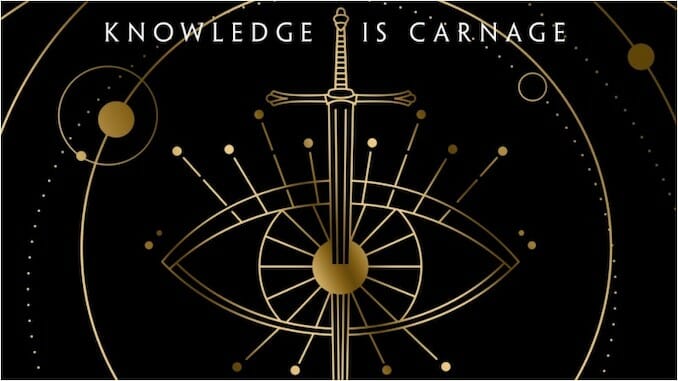The Atlas Six: The Dark Fantasy Viral Sensation is the Real Deal

It is a truth universally acknowledged that an awful lot of the things that earn the label of “viral sensation” online don’t quite live up to the hype. (Remember when we had to tell people not to eat Tide Pods?) This is why it’s such a relief that last summer’s massive BookTok hit The Atlas Six is actually just as good as everyone online said it was.
Olivie Blake’s dark academia fantasy novel was originally self-published via Kindle Digital Publishing in early 2020 but went viral on social media site TikTok last year, garnering over 11 million mentions and dominating discussion for months. The result of all this success was a major publishing battle for rights to the story (which Tor Books ultimately won) and a deal with Amazon Studios to adapt a television version of the suddenly uber-popular novel.
A revised and edited edition of The Atlas Six with brand new illustrations hit shelves this week ahead of the release of the sequel The Atlas Paradox this Fall and let’s put it this way: The time to get on this fantasy hype train is right now.
The story centers on the mysterious Alexandrian Society, a secretive body that serves as caretakers of lost knowledge from the greatest civilizations of antiquity (such as the library that gives the group its name). Every 10 years, the group recruits six of the most powerful young magic users (known in this world as medeians, not to be confused with simple witches!) to join their ranks, but only after an initiation period that requires them to live, study, and learn to survive together.
Each of the six new would-be members chosen by Caretaker Atlas Blakely to form the latest class possesses powerful and unique abilities. Libby Rhodes and Nicolas Ferrer de Varona have been rivals since their earliest college days thanks to their immense skills in elemental magic. Reina Mori is a naturalist capable of talking to (and controlling) plants. Parisa Kamali is one of the most powerful telepaths of her generation, and Callum Nova is her equal as an empath, one as talented at manipulating people’s minds as he is reading them. And Tristan Caine, son of an influential magical crime boss, can see through illusions and possibly even reality itself—an ability that’s so rare even the Society itself isn’t fully clear on the limits of what his powers could one day accomplish.
As a group, they’d be almost unstoppable, but mistrust and dislike are rife amongst them, especially since they already know that they’re five people competing for six slots. Because before any of them can formally become Society members (and unlock all the power, prestige, and forbidden knowledge that comes with membership) one of them will have to be eliminated.
-

-

-

-

-

-

-

-

-

-

-

-

-

-

-

-

-

-

-

-

-

-

-

-

-

-

-

-

-

-

-

-

-

-

-

-

-

-

-

-








































